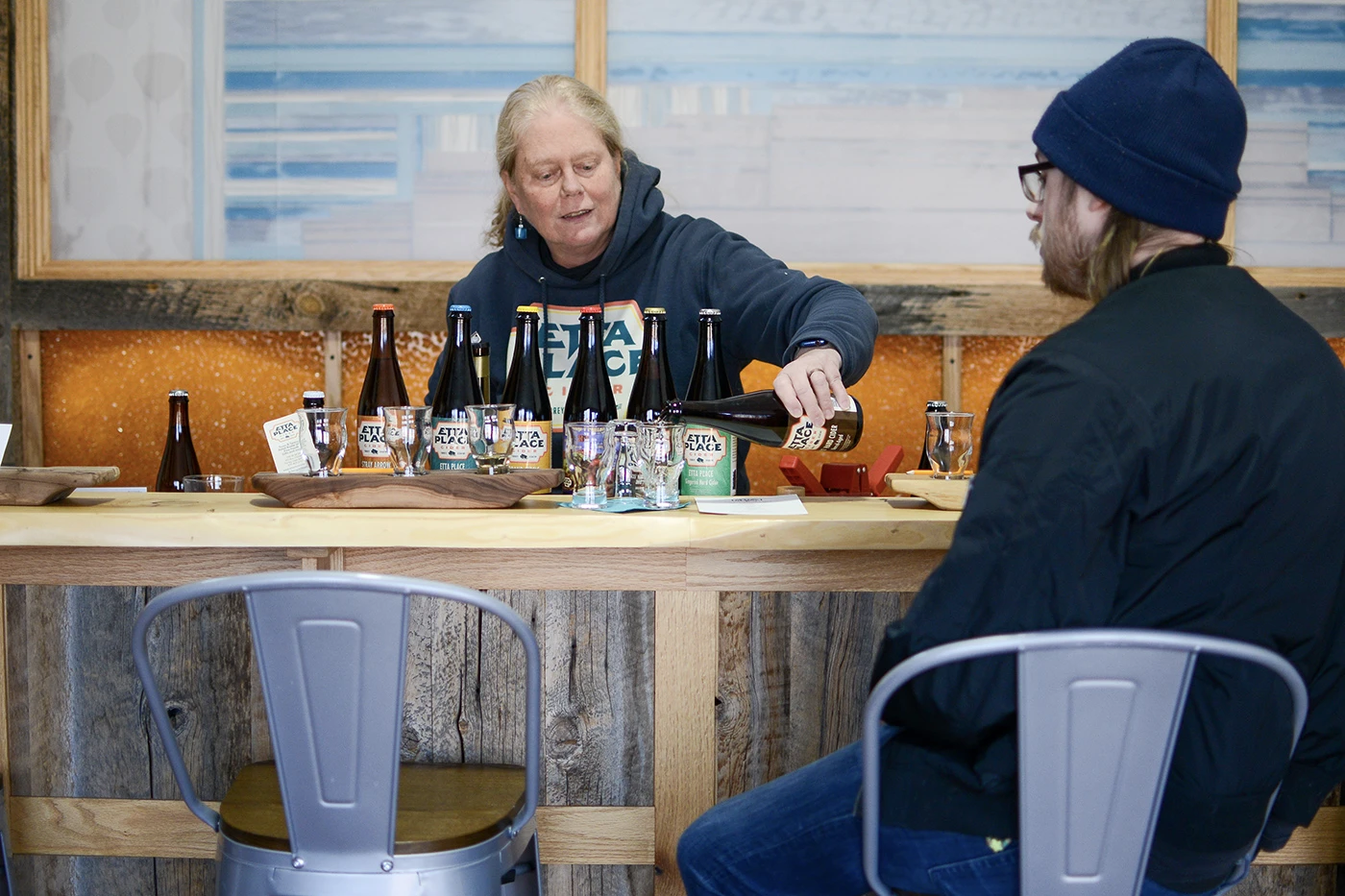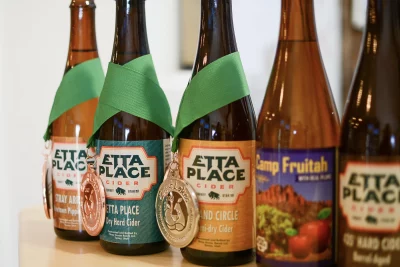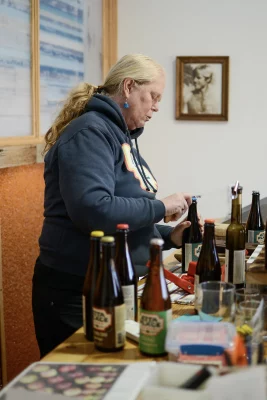
Etta Place Cider: Southern Utah’s Ciderbison Cidermakers
Beer & Spirits
Ann Torrence and Robert Marc didn’t intend to start their own cider business when they planted apple trees at their home in Torrey, Utah. Being close to an elevation of 7,000 feet, there weren’t many resources that detail which cider varieties do best in their climate, let alone which trees produce the best apples for cidering. Now, the couple and business partners have over 500 trees split among two orchards, with 90 varieties of cultivar apples used in their outlaw-inspired business, Etta Place Cider. The first and only of its kind in Torrey, the business draws in locals but also those passing through on their way to Capitol Reef and other national parks in the Southern Utah basin. “Torrey isn’t a straight shot from anywhere, but when you find it, we hope you can visit and savor life for a bit where the arrow has hit its mark on our hearts,” says Torrence.

The name Etta Place Cider was inspired by the elusive outlaw and rancher Etta Place, who was wanted by detectives alongside the infamous Butch Cassidy. It is speculated that Place ended up somewhere near Torrey, which was an unexpected area for Torrence and Marc to settle after having lived and gardened in Sugar House. Now, the couple has found community in the farm-to-table industry, filling a niche with their cidery. “We talk a lot about farm-to-table food, but we don’t talk much about farm-to-table beverages,” says Torrence. The local business that kick-started the farm-to-table beverage experience in Torrey was the Hunt & Gather Restaurant. “We collaborated with Chef Chet Saign, who paired our cider with his food in a way that was so astounding and unexpected … I would have never put our plum-flavored cider with dessert, but it was delicious,” she says.
“We talk a lot about farm-to-table food, but we don’t talk much about farm-to-table beverages,”

Friends and business partners have also come from other growers in neighboring states such as Colorado, providing other apple varieties or pears that the couple can make specialty ciders from. Torrence says, “A pear tree grower in Notom hadn’t harvested the fruit in over 40 years because he had no one to sell them to. [Working with him] is really rewarding … to be expanding the agricultural opportunities all over this area.”
Growing in the desert comes with its own set of challenges, and last year’s late freeze meant Etta Place had to rely on blending the back stock of apples saved and fermented from the previous year’s harvest. Certain apple varieties are grown solely for cider making. “In the cider world there are inedible apples which add a whole lot of mouth feel and character to the cider,” Torrence says. One of these varieties, the red-fleshed apple, is used to make the rosé cider for which they are well known.
“In the cider world there are inedible apples which add a whole lot of mouth feel and character to the cider,”
The business’s approach to befriending neighboring farms and Torrey residents also extends to the land itself. The organic, regenerative and agricultural-based model makes the cider that much more valuable to businesses that are looking to provide top-tier cider to their patrons. Etta Place currently offers ciders, “… none of which are particularly sweet. Two of them, in fact, have zero residual sugar,” Torrence says. Each variety of fruit is cider-specific and will result in a cider that will be either dry, semi-dry, semi-sweet or sweet. The Newtown Pippin variety is akin to a Granny Smith but amplified in the way it comes out “dry and tart like a pinot grigio,” Torrence says. The heritage fruit is made into semi-dry ciders that come out semi-sweet but still not too sweet.
Etta Place Cider is on the menu at many locations in the Salt Lake Valley, including Scion Cider Bar, The Bayou, East Liberty Tap House and more. Those visiting Torrey can stop by the cidery at 700 W. Main Street to learn how the cider is made. Book a tasting experience at ettaplacecider.com.
Read about more local ciders:
Scion Cider: Bringing Cider and Education to All
Mountain West Hard Cider: Complementing, Not Competing
